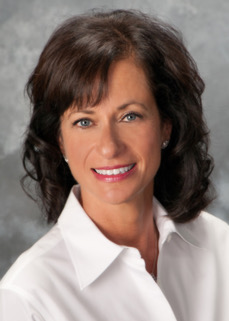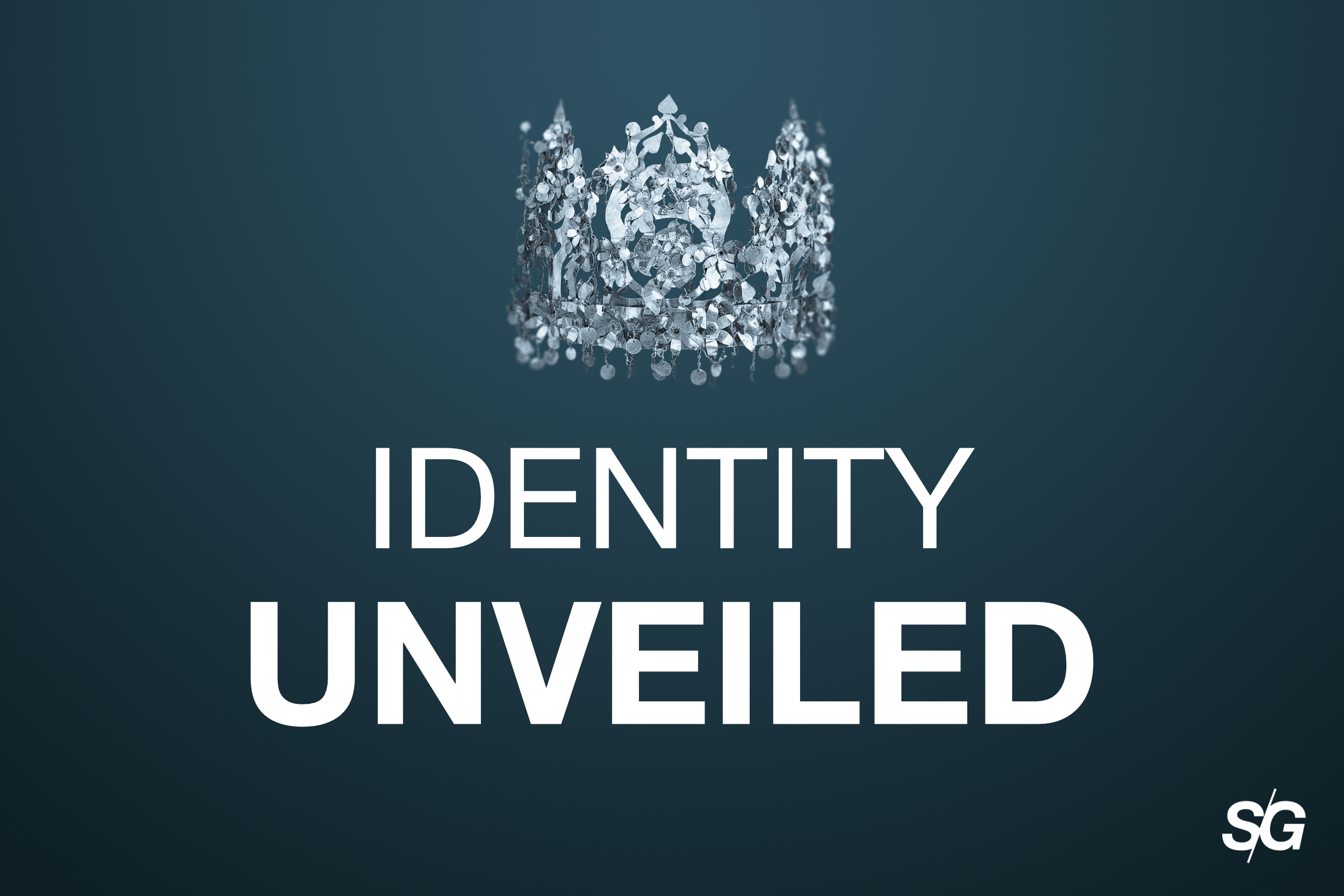Also Available On






FRIENDSHIP CIRCLES & IDENTITY
This is Shirene Gentry with the Identity Unveiled podcast.
I mentioned in my Easter podcast that Jesus went from lowly to lonely – from a manmade manger to a manmade cross. He ended His life in total separation from God with the weight of each person’s sin on his shoulders so we would never be alone again.
Regardless of where you are right now, know this: God has NOT forsaken you. Even if you feel He isn’t present doesn’t mean he is. It is simply your (incorrect) perception. Also know this: Sometimes even your closest friends will disappoint because of misunderstanding or our expectations. We are each fallen people who don’t get friendships “right” 100% of the time.
Research indicates that loneliness is an even a stronger predictor of early death than obesity or a sedentary lifestyle.
Think of the relationships in your life vertically and horizontally. God is unchanging even when our life does. So how does that work with our horizontal relationships?
Today I’d like to discuss the connection between identity and friendship. What does identity have to do with friendship? Being your authentic you – your life story as it unfolds – and having these special people in your life as a support network through life, through seasons, through change, through crisis.
Before I got married, the only advice my grandmother gave me was, “Don’t forget your girlfriends.” I’m now curious as to this statement. I can’t help but wonder if she had a close confidante when crisis rolled into her life in her 20s with a young child.
I hear it a lot. I’m lonely. I don’t have many friends.
At the outset, let’s think broadly: God will bring friends into your life that are lifelong, life seasons, life struggles.
Lifelong – People you have known the majority of your lifetime. You can go lengths of time apart or without talking and pick up where you left off. What a blessing to have these people in your life!
Life Seasons – Perhaps you’re raising children or teens with peers. Perhaps you’re caregiving. Through each of your life stages, you should have friends to share these shared experiences. Why? So you can bring up and discuss the topics that are important during that phase of time. This friend group may, in fact, change as life seasons do. That’s okay.
Also in this category I include a support network – personal and professional – for those times in life you are going through a hardship, trial, or crisis. I have news for you: You were never meant to handle burdens by yourself!
Sometimes – when you least expect it – he will bring friends back into your life in the most unexpected and totally non predictable ways. Today I’d like to dedicate this podcast to my friend from long ago who God brought back into my life in the craziest of ways. Diana, if you’re listening, this podcast is dedicated to you.
And not to get off on a tangent, but I was listening to a sleep podcast earlier this week on the connection between quality of sleep and depression, especially in women, and my immediate thought was, “Do these people have close friends to talk with?” True…many times the challenges of life aren’t that simplistic or causative, but it did make me wonder.
So today I want to share what I consider to be the circles (levels) of friendship and why they are important.
Jesus’ example
Think about it. He had three circles of friends: the innermost circle included Peter, James, and John. The next, bigger circle included the other disciples. The outermost circle included the throngs – especially women – who followed him during his three years of ministry.
What does this example teach us?
We, too, should develop and nurture friendships in this matter. What does this practically look like?
Innermost Circle
If you are married, your spouse should be your very best friend. Research shows that marriages last if your spouse is also your best friend. No other relationship should get priority. That means you nurture and treasure this covenant relationship more than the others. As a side note, if you discover that this is not the case for you and there are challenges, please seek guidance and direction from a licensed marriage and family therapist to address any issues at hand. If you’re struggling with the marriage, vent to a professional in a confidential relationship, not on Facebook!
So the marriage relationship is the smallest, innermost circle there is! Nurture it, treasure it, and guard it. Ladies, that means you don’t talk disparagingly about your spouse to others or put anything on social media that isn’t protective and edifying.
Does that mean we forsake others for the sake of our marriage? No! This is unhealthy and unwise!
Let me give examples: I have had dear ladies who have come for one on one grief coaching. The significant difference in those who already have girlfriends and those who do not at the time their spouse dies is one of the bridges between moving forward and staying stuck in grief.
Inner Circle
“A friends loves at all times”. [Proverbs 17:17]
Science is replete with evidence that one’s physical health, emotional health, and even longevity is positively correlated with close friendships. I read a book years ago where the author cited a study that people were healthier if they had friends than if they ate a healthy diet. The point was made that it’s better to eat Twinkies with a friend than to eat broccoli alone.
If you know me, you also know I advocate healthy, daily, lifestyle choices. But you get the point of what science shows.
Now let’s move to the next circle out. I’ll spend the most time in this circle because science is telling us that this is what we as a culture are lacking in our lives). A quick Google search indicates that we need five close girlfriends. Let me say it again, if you’re married, these close friends need to be same sex. This is a boundary issue. If you’re married, you don’t need to be sharing your innermost feelings and emotions with someone of the opposite sex.
So what does this practically look like?
- Do you have a small group of same sex friends who truly know you inside out? Again, it can be 5 or less! Science indicates we actually don’t “do” close relationships well if we have more than this in our innermost circle.
- What should characterize this circle?
From a counseling concept of attachment, you should be able to …
A. Be seen
B. Be safe
C. Be secure
To be seen means that you are your authentic self, sharing your struggles, your emotions, and your thoughts.
In life coaching, there is an intimacy scale that looks like a musical crescendo. At the far left is when you share only facts. At the far right of the crescendo is that ability to share facts, feelings, and innermost thoughts. This level of intimacy only occurs in a small, confidential number of people.
Let me also say that it doesn’t need to be a group, but can be separate individuals who comprise this innermost circle, outside of the relationship with your spouse.
To be safe means that these people do a few things: they don’t condemn, criticize, or react. They simply allow you a safe place to share.
As a side note, have you ever had someone that you barely know or that barely knows you decide to “speak truth” into your life? Sometimes this may come across as a rationalization that they have a spiritual gift of prophecy (to speak truth), so they hide behind spirituality to let you have it. Or, sometimes, they observe you doing something that they feel like needs to be addressed in your life because they believe it’s the right thing to do. This happened to my husband years ago with an acquaintance who took it upon himself to put my husband in his place. He came home offended, and rightfully so! The dynamic of their relationship – an even bigger circle than this one – did not warrant this kind of “helpful” confrontation.
To be secure means that these people trustworthy. Have you been burned in this regard? I think we all have. Knowing who to trust can be tricky, especially if we have been vulnerable and then someone takes advantage of that.
Who do you know who to trust? Pay attention to what is disclosed to you by your circle of friends. Do they share sensitive information about others? Chances are, they may be sharing sensitive information about you, so this may be a red flag in your level of disclosure. Can you still be friends? Of course! It simply means you don’t share everything based on what you’ve already observed.
Sometimes learning to trust someone involves you sharing something deeply personal – being vulnerable – and seeing how that person responds. If they are trustworthy, they will keep it confidential. And you should do the same for them.
In going back to my earlier comment about women, sleep quality, and depression, I’d be very curious to know if their physical and emotional lives would improve simply by having a very few close friends.
But let’s bring it home to you: Do you have a few close friends? If not, then why not? What is preventing you from establishing these close relationships?
I listened to another podcast a couple of weeks ago about this very topic. The podcast guest had written a book talked about the three areas that are essential for this innermost circle of people: vulnerability, positivity, and consistency.
Could it be that you’re not making time?
Could it be that you’re not a positive influence? Meaning, how do people feel after they’ve been with you? Better or worse? Are you critical, condemning, and challenging?
Could it be that you only go so far emotionally with your friends that prevent true intimacy?
Here are some things to ask yourself if you would like to take steps toward deeper friendships:
-
- Am I seen? (authentic)
- Am I safe? (“soft” place for others)
- Am I secure? (trustworthy)
- Am I intentional? (prioritizing these relationships)
- Am I accepting?
*One caveat: If your friend is engaging in any kind of destructive behavior where intervention is needed (danger to self or others), this breaks all the rules for confidentiality. You are putting what is best for them even above your relationship.
Conflict In the Inner Circle
For the people who are the closest emotionally to you, it is worth the time, effort, and relationship to try to communicate how you each feel. Can you make the other person listen? No. Can you make the other person empathic? No. But what you can do is simply try. If they are unwilling to work through the challenge, then let them go. This says more about them and their inability to do hard things than it does about the conflict or challenge at hand.
Outer Circle
People in these circles could include neighbors, co-workers, parents of your children’s friends, etc. These are the people with whom you have certain things in common – “doing life together”.
You are friendly and converse, and have some kind of working relationship with these people.
It’s in this rung where your expectations may need to loosen. If you haven’t maintained a close, intimate relationship with people in this circle and, for whatever reason they distance themselves, let them go.
Outermost Circle
These are the people that are simply acquaintances in your life. Do you share your innermost feelings and thoughts with these people? Absolutely not! Does social media come to mind? These are your facebook friends who only know you from afar! Do not share sensitive information on any type of social media. This is an issue of boundaries, or rather, inappropriate boundary setting, so please be aware of this in your own life.
Avoid These People
I’d like to also share that there are people you should avoid. I’ve touched on it before, but here is a quick list:
- Shares your secrets
- Nothing good to say to you
- Manipulates – appearing friendly only to gain something for themselves
- Possessive, controlling, jealous
- Unwilling to hear your side or even your correction (if you’re a close friend) – If this happens, this has nothing to do with you and it’s actually something going on with them!
- Energy sapping
- Enabling bad behavior
- Discouraging
- Doesn’t listen
- Withholds their innermost thoughts and feelings
God will bring people in and out of your life and that’s okay. Be thankful for the time you did have and keep moving forward.
One last encouragement for becoming a better person and friend:
Think younger, think older, think peer.
You become a better person by having maybe 1 or 2 people with whom you confide deeply who are on each side of your generation. Why? Because we learn from others’ viewpoints.
Now. Go out and be the friend you want to have. And let me know if you have any questions along the way. You take the first step. Don’t wait for others. Live an intentional life and see what God does with your action steps.
I’d like to close with a Persian proverb: I can only get better if I have good friends.
My questions to you are:
- Do you have those friends?
- Are you being that friend?
Until next time, this is Shirene Gentry with the Identity Unveiled podcast.
Lorem ipsum dolor sit amet, consectetur adipiscing elit. Sed nec pellentesque purus. Nunc finibus urna eget est molestie, non dignissim nulla cursus. Proin hendrerit, lacus vitae imperdiet rhoncus, tortor quam sodales lorem, vitae hendrerit est nulla at dolor. Quisque dictum dui eget turpis dapibus pharetra. Morbi feugiat dolor eu sapien suscipit, ut molestie lorem varius. Pellentesque id justo eu risus dapibus maximus. Pellentesque id egestas ipsum. Vivamus nec neque ac tellus ultricies dapibus vitae in sapien.
Lorem ipsum dolor sit amet, consectetur adipiscing elit. Sed sed sapien erat. Vivamus lacus arcu, luctus eget pulvinar eget, dignissim et justo. Vivamus rhoncus nunc ut dolor malesuada ornare. Cras faucibus augue venenatis viverra commodo. Orci varius natoque penatibus et magnis dis parturient montes, nascetur ridiculus mus. Quisque malesuada consequat dolor non auctor.
About The Author

Shirene Gentry
Shirene is a Board Certified Master Christian Life Coach through the American Association of Christian Counselors and has professional memberships with the AACC and the International Christian Coaching Association.
